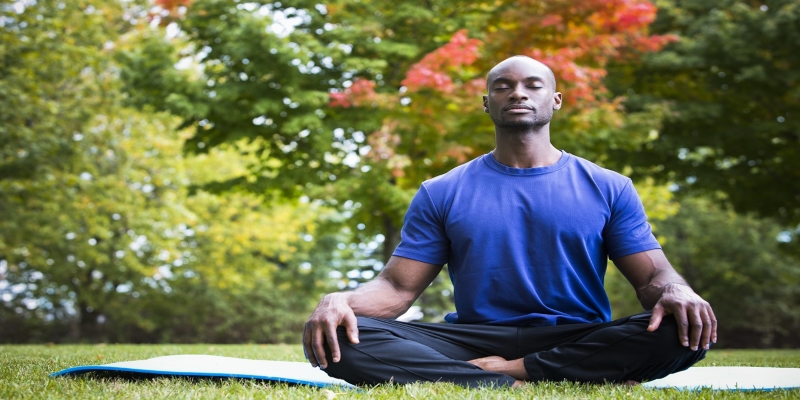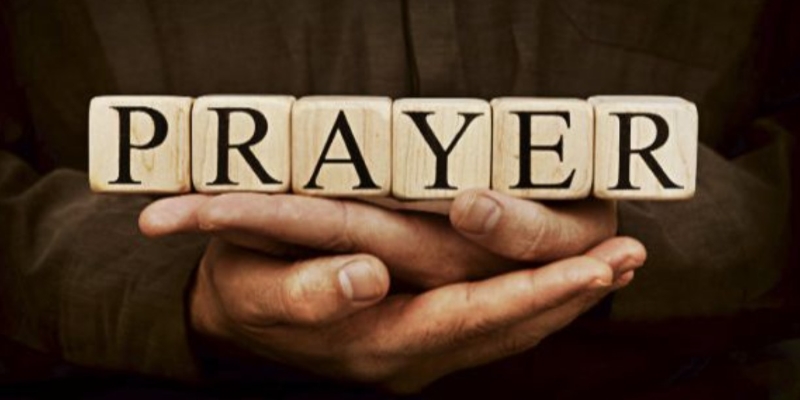
6 Spiritual Practices For Managing Anxiety And Depression
 Mental Health & Spiritual Healing
Mental Health & Spiritual Healing Anxiety and depression are common mental health challenges that affect millions of people worldwide. While conventional treatments like therapy and medication can be highly effective, many individuals also turn to spiritual practices to find relief and support their emotional well-being.
Anxiety and depression are common mental health challenges that affect millions of people worldwide. While conventional treatments like therapy and medication can be highly effective, many individuals also turn to spiritual practices to find relief and support their emotional well-being. Spirituality, in this context, refers to a broad range of practices and beliefs that help people connect with a higher sense of purpose, meaning, and inner peace. These practices can complement traditional treatments, offering tools for self-care, stress reduction, and emotional healing.
This article discusses various spiritual practices that can help manage anxiety and depression, providing a well-rounded understanding of how spirituality can support mental health. From mindfulness and meditation to the power of gratitude and community, we will delve into practical strategies and explore how they can be integrated into daily life for long-term benefits.
Meditation: A Path To Inner Calm
One of the most widely practiced spiritual techniques for managing anxiety and depression is meditation. Meditation involves focusing the mind and calming the body, creating a state of heightened awareness and relaxation. There are many forms of meditation, but the most popular ones for anxiety and depression are mindfulness meditation and loving-kindness meditation.

Mindfulness meditation is based on the concept of being present in the moment. It teaches individuals to observe their thoughts without judgment, allowing them to step back from their emotions instead of being overwhelmed by them. This practice helps people break the cycle of rumination, a common contributor to both anxiety and depression.
Loving-kindness meditation, also known as "metta," is another technique that has been shown to reduce symptoms of anxiety and depression. In this practice, individuals focus on sending love, compassion, and goodwill to themselves and others. This can foster a sense of connection and warmth, helping people combat feelings of isolation and hopelessness often associated with depression.
Mindfulness: Living In The Present Moment
Mindfulness, while often practiced through meditation, can also be integrated into daily life. Being mindful means paying full attention to the present moment and observing one's thoughts, feelings, and sensations without trying to change or judge them. This practice can help individuals gain greater control over their anxiety and depression by reducing the tendency to become overwhelmed by negative thoughts.

Research suggests that practicing mindfulness regularly can lead to a reduction in symptoms of both anxiety and depression. When individuals focus on the present, they are less likely to dwell on the past or worry about the future—two common triggers of anxiety and depression. By acknowledging and accepting their feelings without self-criticism, people can cultivate a more balanced and compassionate relationship with themselves.
Prayer: A Source Of Comfort And Connection
For many people, prayer serves as a powerful spiritual practice for coping with anxiety and depression. Prayer can provide a sense of comfort, offering a direct connection to a higher power, whether it be God, the universe, or a personal spiritual belief. The act of praying can help individuals release their worries, expressing their fears and hopes in a safe, sacred space.
For those who are religious, prayer may also involve seeking guidance or strength from their faith. Research has shown that spiritual practices like prayer can reduce feelings of loneliness, increase hope, and provide a sense of purpose—all of which are essential in managing anxiety and depression.

Even for those who are not religious, prayer-like practices, such as affirmations or moments of silent reflection, can have similar benefits. These practices create an opportunity to express gratitude, seek clarity, and release negative emotions, promoting a sense of peace and emotional resilience.
Yoga: A Union Of Body, Mind, And Spirit
Yoga is another spiritual practice that has gained widespread popularity for managing anxiety and depression. Rooted in ancient spiritual traditions, yoga combines physical postures, breathwork, and meditation to promote relaxation and healing. The practice encourages the mind and body to work together, helping individuals release tension and increase self-awareness.

The physical aspect of yoga, including deep breathing and stretching, can activate the body's parasympathetic nervous system, which is responsible for calming the body after stress. This can help lower cortisol levels (the stress hormone), leading to a reduction in anxiety symptoms.
Beyond the physical benefits, yoga also provides an opportunity for introspection and self-reflection. The practice often encourages individuals to tune into their emotions, observing them with curiosity rather than judgment. This can create space for healing, offering a sense of inner calm that can support mental well-being.
Gratitude: Shifting Focus From Lack To Abundance
A spiritual practice that is often overlooked in discussions about mental health is gratitude. While it may seem simple, cultivating an attitude of gratitude can have a profound impact on one's mental state. When individuals focus on the things they are grateful for—whether it's relationships, experiences, or even small daily blessings—it shifts their attention away from what they lack, which is often a source of anxiety and depression.
Research has consistently shown that regularly practicing gratitude can improve mood, reduce stress, and increase overall well-being. Gratitude practices can range from keeping a daily journal where individuals write down things they are thankful for to simply taking a moment each day to reflect on positive aspects of life. This shift in focus can help people develop a more positive outlook, even in difficult circumstances.
Community: Finding Support In Spiritual Fellowship
Spirituality is often experienced in the community, whether through religious services, support groups, or informal gatherings. For many people, participating in spiritual communities can provide a sense of belonging and emotional support, which is especially important for those dealing with anxiety and depression. Feeling connected to others, whether through shared beliefs or practices, can help reduce the feelings of isolation that often accompany these mental health challenges.

Research has shown that social support is a key factor in managing mental health. Spiritual communities can offer a network of individuals who provide emotional and practical support, helping people feel understood and less alone. Additionally, being part of a spiritual group can foster a sense of purpose and meaning, which can be vital in overcoming the negative thought patterns that contribute to anxiety and depression.
Conclusion
Spiritual practices offer a wealth of tools for managing anxiety and depression, from mindfulness and meditation to prayer, gratitude, and connection with nature. These practices can provide a sense of peace, support, and meaning, helping individuals cope with the emotional challenges they face. While they are not a replacement for professional treatment, they can be powerful allies in the journey toward emotional well-being. By integrating these practices into daily life, individuals can cultivate a deeper sense of inner strength and balance, helping them navigate the complexities of anxiety and depression with greater resilience.
